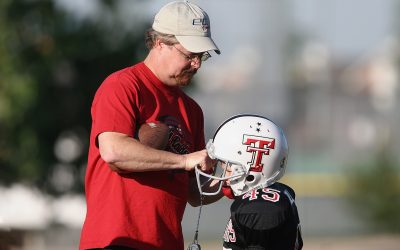What do game-winning scores, record-breaking jumps, diving catches, and close sprints to the finish line all have in common? A delighted, roaring crowd!
Yes, all of the above are moments in sports that give our hearts great joy. I was one of the countless children who spent hours in the backyard playing whichever sport was in season, pretending to perform in front of thousands of fans. Most of the time, I played completely on my own.
Playing sports at a high level without fans is hard to imagine, and mostly unheard of. The only recent instance of this ever taking place was a Major League Baseball game in Baltimore in 2015, after Freddie Gray’s death prompted a riot.
“It’s not very fun [playing without fans]” said Jeff Samardzija, who pitched for the Chicago White Sox that day.
During the current COVID-19 pandemic, sports leagues around the world are forced to consider returning with the restriction of no fans in attendance.
“Having a game without fans is just — what is the word ‘sport’ without ‘fan’?” LeBron James said on the Road Trippin’ podcast. “There’s no excitement. There’s no crying. There’s no joy. There’s no back-and-forth.”
Of course playing with intensity, focus, grit and motivation would be hard without fans.
For Christian athletes, how much harder — or easier — would it be to play for an Audience of One?
What if the silence from empty seats — as weird as it might be — served as a reminder for you to play for an Audience of One?
Playing for an Audience of One is the idea that Christian athletes find their identity in Christ alone — not in their sport — allowing them to play freely and passionately, ultimately worshipping God with sport.
AIA staff member Ed Uszynski defined what playing for an Audience of One does and does not mean in the article “What Does it Mean to Play for an Audience of One?” He writes that “Everywhere in life, we live and move and have our being in [God],” and “it’s His pleasure we should pursue above all else. There’s only One whose opinion about us really matters.”
NFL quarterback Carson Wentz, who founded the AO1 Foundation defines it this way: “[Audience of One] means that we are playing for an Audience of One. When the lights go on and all eyes are fixed on us, our eyes are fixed on Jesus. It’s not just a slogan, it’s a lifestyle. Living for Him, playing for Him, and giving Him all the glory. Win, lose, or draw — I play for an Audience of One.”
Playing for an Audience of One is such an important lesson first and foremost, because sport (and life) is a form of worship to God. For athletes accustomed to playing in large arenas, AO1 is a reminder to stay grounded. AIA staff member Tyler Stowell says that large audiences make it easier “to ride the roller coaster of how I feel about myself based on what someone says.”
“So how does an athlete play for an Audience of One without fans in attendance? With the audience gone, so is the temptation to play solely for the crowd’s approval — somewhat.
The majority of the dos and don’ts in Ed’s article still apply here. “You can (still) play with complete freedom because only God’s opinion of you really matters.”
You may not hear the roar of the crowd, but you can know that God is watching. He wants, and knows, what’s best for you.
Playing with an AO1 mindset without fans can be easier in a sense. Fans can sometimes be a distraction from worship. As humans, we want to play for people’s approval, instead of worshiping God as we play. Playing with no fans can help take some of your attention away from you, and onto God.
Ask yourself: Would the absence of fans take away my passion for the game and drive to compete? Or could I still play freely, enjoying the talents God has given me and worshipping Him through the competition?
With or without fans present, the stakes of competition are still the same. The nerves and pressures of the game are still real and should exist. Perhaps having no fans in attendance can broaden your perspective that it is a game. It is not eternal.
Part of playing for an Audience of One is giving people the chance to see Christ in you as you compete. Without fans watching, you now have a greater opportunity to minister to your teammates. Here are six tips for playing with an AO1 mindset without fans.
- For those teammates of yours struggling to find motivation, share with them where your motivation comes from — not in what the world says about you, but in what God says about you. Be a Christlike example to them, as Paul said in 1 Corinthians 11:1, “Follow my example, as I follow the example of Christ.”
- Write a focal point on your body or uniform to help you remember who you are playing “with” all game long.
- Use your focal point to stay aware of God’s presence in the midst of the game. Every time you think of the awkwardness of playing in a large, empty stadium, remember that God is with you, and He wants you to play your hardest.
- While the fans aren’t present to bring you cheers and momentum, let the stillness open your ears to God’s voice. God wants to speak to us, but with so much noise we often tune Him out. Let Him remind you who you are as His child.
- Take the opportunity to play with a freedom that comes from finding your identity not in being an athlete, but in being a child of God. If your identity is found in God alone, and not the absent fans, you should be stable. Your identity doesn’t disappear with the fans.
- While you attempt to play for an Audience of One, remember that this concept carries over into all aspects of life — walking humbly with God moment by moment, on a daily basis, trusting in His grace despite your shortcomings and failures — with or without spectators.
I played baseball when I was younger, and on a few occasions when my team had a large lead, I would be called in to pitch. “It’s just you and Dan playing catch,” my coach would often say. Many coaches have used some iteration of this to tell their athletes to take their minds off of the competition and just focus on the simple task at hand — playing catch, shooting hoops, running around a track.
If you have to resume your season without fans, take yourself back to when you were an eight-year-old playing only in front of your parents. In a way, wouldn’t that be kind of fun? Stress-free? Maybe even relaxing?
That’s how it should be when playing for an Audience of One. God is there, even when the fans aren’t. He’s cheering for you, even in a quiet, empty stadium. He loves you unconditionally. It’s just you, and the game, and God. So play your heart out for Him.
If you want more ideas on how to do this, get exclusive content from UTC Every — a virtual experience hosted by AIA’s Ultimate Training Camp that connects God, life and sport using five biblical principles, interactive activities, and guided small groups.









0 Comments